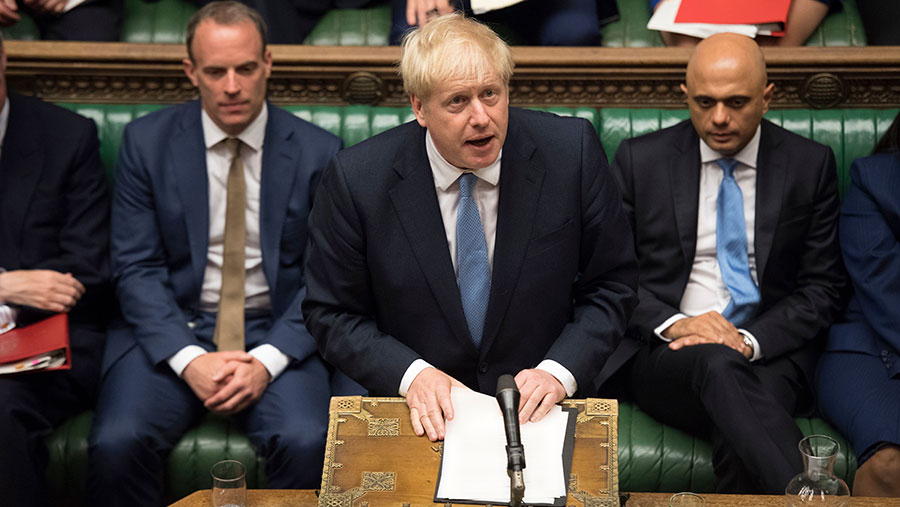Opinion: Blustering Boris underestimates damage of no-deal Brexit
 © Jessica Taylor/UK Parliament/Handout/EPA-EFE/Shutterstock
© Jessica Taylor/UK Parliament/Handout/EPA-EFE/Shutterstock Asked at the Royal Welsh Show about the likelihood of the UK leaving the European Union with or without a deal, the then Defra secretary Michael Gove is reported to have replied he was “confident” we would exit with a deal in place.
A few days later, Mr Gove accepted a job from the new prime minister with the main task of preparing for a no-deal Brexit on 31 October. Such is the nature of politics.
See also: Did Michael Gove achieve anything at Defra?
If your assessment of the above leads you to conclude you can’t trust or believe a word politicians say, then who am I to disabuse you?
In some quarters, Mr Gove’s departure from Defra was viewed as bad news. He had, the argument goes, raised the profile of the department and made things happen, (although he did not, in his two years there, succeed in getting his Agriculture Bill or Environment Bill through parliament).
Responsibility for that now rests with Theresa Villiers who has taken over as the new boss of the department.
She is the sixth head of Defra in nine years and yet another politician the NFU and others will have to train in what the job entails. I wish Minette Batters et al good fortune in that. For as far as I have been able to ascertain, Ms Villiers has little pre-knowledge on which to base her decisions.
But presumably most of these will be influenced, if not governed, by Boris – if he is still there in three months.
In his speech outside No 10 after he’d been to see the Queen, he gave high-tech agriculture a favourable mention. In particular, he said “Let’s liberate the UK’s extraordinary bioscience sector from anti-genetic modification rules. Let’s develop the blight-resistant crops that will feed the world.
“We will be the seedbed for the most exciting and most dynamic business investment on the planet.”
Brave words and you might expect me to welcome them with open arms. I have, after all, been an advocate of GM for many years.
But while I hope such technology may be accepted and used in the UK in the not too distant future, I believe its commercial introduction on UK farms must still be treated cautiously.
It would, of course, make GM product trade deals with the US easier. It might even allow hormone treated beef and chlorinated chicken into the UK after Boris gladhands Trump in the White House.
But most of Europe is dead against GM and, deal or no-deal with the EU, it will hopefully, after the dust has settled, remain an important long-term export market for British produced goods.
The plain fact is, our industry needs to keep our export channels to Europe open. Our beef and sheep farmers cannot tolerate tariffs of more than 40%.
Nor can, or should, the rest of UK agriculture have to suffer unprotected free trade. Indeed, our whole industry needs to be able to trade freely with Europe.
Boris blusters that we will leave, “no ifs, no buts”, at Halloween. But despite his assurances, does he know or even really care about the damage a no-deal would do to agriculture?
Even the most ardent farming leavers did not anticipate the likelihood of such a catastrophe.
